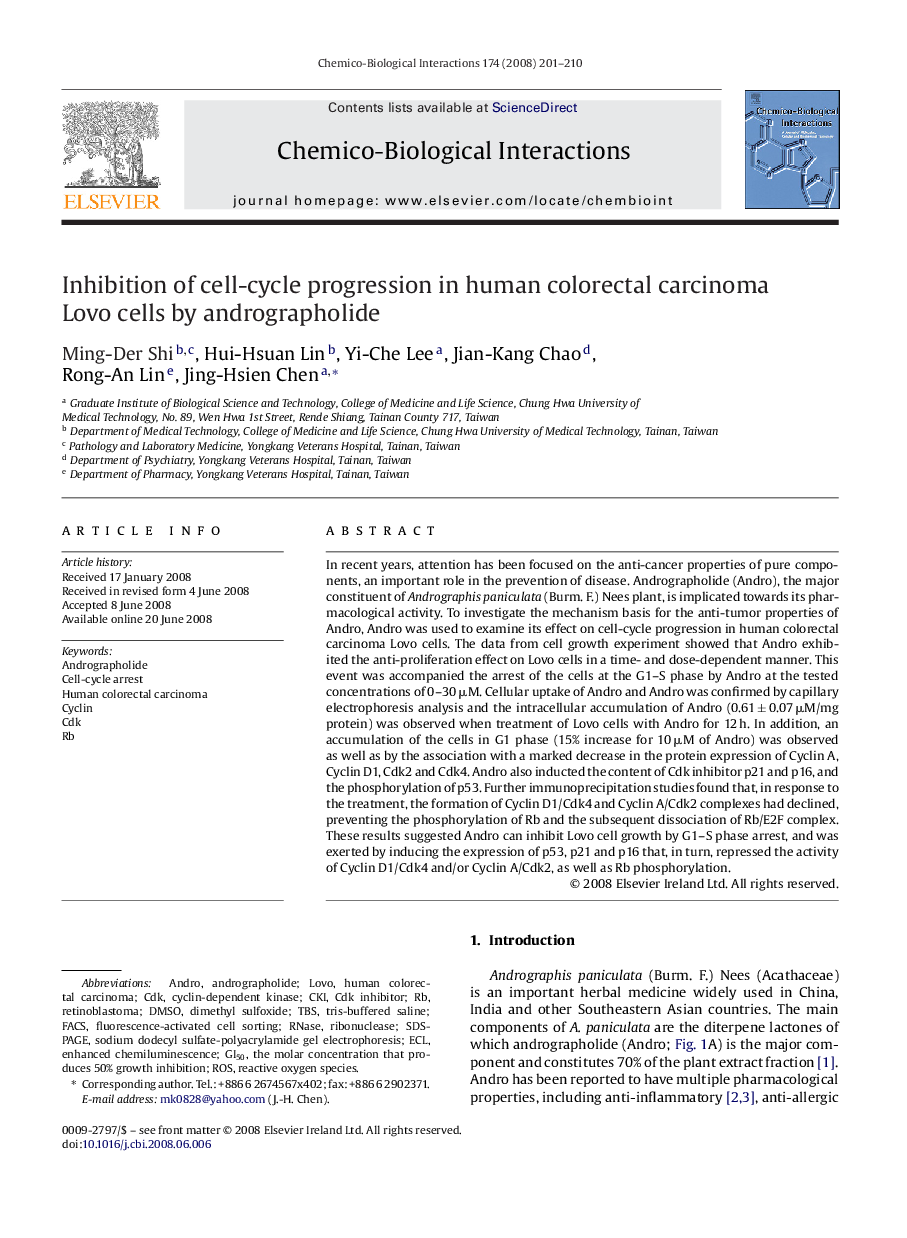| کد مقاله | کد نشریه | سال انتشار | مقاله انگلیسی | نسخه تمام متن |
|---|---|---|---|---|
| 2581700 | 1130202 | 2008 | 10 صفحه PDF | دانلود رایگان |

In recent years, attention has been focused on the anti-cancer properties of pure components, an important role in the prevention of disease. Andrographolide (Andro), the major constituent of Andrographis paniculata (Burm. F.) Nees plant, is implicated towards its pharmacological activity. To investigate the mechanism basis for the anti-tumor properties of Andro, Andro was used to examine its effect on cell-cycle progression in human colorectal carcinoma Lovo cells. The data from cell growth experiment showed that Andro exhibited the anti-proliferation effect on Lovo cells in a time- and dose-dependent manner. This event was accompanied the arrest of the cells at the G1–S phase by Andro at the tested concentrations of 0–30 μM. Cellular uptake of Andro and Andro was confirmed by capillary electrophoresis analysis and the intracellular accumulation of Andro (0.61 ± 0.07 μM/mg protein) was observed when treatment of Lovo cells with Andro for 12 h. In addition, an accumulation of the cells in G1 phase (15% increase for 10 μM of Andro) was observed as well as by the association with a marked decrease in the protein expression of Cyclin A, Cyclin D1, Cdk2 and Cdk4. Andro also inducted the content of Cdk inhibitor p21 and p16, and the phosphorylation of p53. Further immunoprecipitation studies found that, in response to the treatment, the formation of Cyclin D1/Cdk4 and Cyclin A/Cdk2 complexes had declined, preventing the phosphorylation of Rb and the subsequent dissociation of Rb/E2F complex. These results suggested Andro can inhibit Lovo cell growth by G1–S phase arrest, and was exerted by inducing the expression of p53, p21 and p16 that, in turn, repressed the activity of Cyclin D1/Cdk4 and/or Cyclin A/Cdk2, as well as Rb phosphorylation.
Journal: Chemico-Biological Interactions - Volume 174, Issue 3, 11 August 2008, Pages 201–210